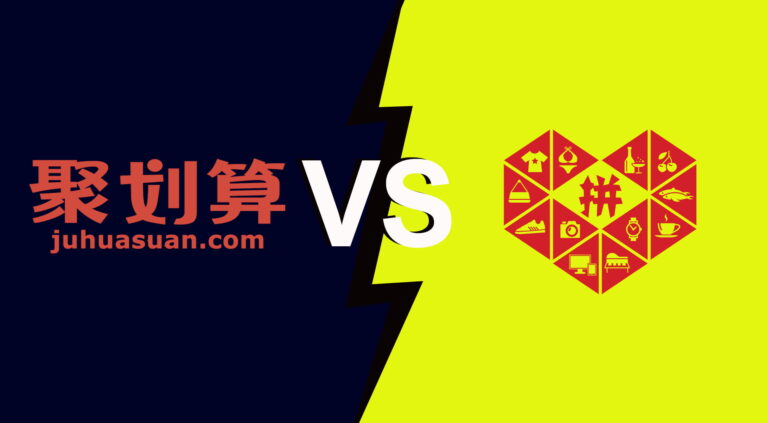If you are single in China, purchasing your dream products have become easier than finding love. It is even truer today, November 11th, also known as Double Eleven Day or Singles Day. Since Alibaba launched its first Singles Day online sale in 2009, Double Eleven Day in China has been about shopping and competitors gradually got in the game.
Double Eleven Day in China: When JD challenges the giant Alibaba
Alibaba Group, the world’s largest e-commerce company, held 46,9% of China’s online retail share in 2015, that is, nearly the half of the overall Chinese e-commerce market according to Euromonitor International. Despite this dominance, JD.com stood out in the market owning 20,1% of online retail share in 2015.
2016 Double Eleven Day offers a great opportunity for JD to assert itself as a serious competitor to Alibaba Group, even though JD launched its Singles Day online sale in 2010, one year after Alibaba initiated this one-day shopping extravaganza. The battle between JD and Alibaba’s Tmall, China’s biggest online B2C platform, started with ads in October.
On the one hand, Tmall tries to build an image of a straight-out co-brand platform. Its launch video links several famous brands’ mottos together, and Chinese metro stations and billboards have been covered with 49 different posters representing 47 brands taking part in 2016 Double Eleven Day in China. On each poster, the brand expresses its identity using Tmall’s cat head logo as a canvas. The 47 brands include multiple industries such as FMCG, technology, and luxury. Through this advertising campaign, Tmall wants to highlight its capacity to collaborate with companies and brands on a global scale.
On the other hand, JD chose three real online shoppers to express their personal view and attitude towards Double Eleven Day in China, hoping that their speeches will strike a chord with consumers and prompt them to change their consumption ideas. These videos convey the idea that on 11.11, Chinese should indulge themselves with products they want rather than buying blindly and frantically at low prices – what they have been doing since 2009 on Alibaba’s e-commerce platforms.
Alibaba banks on Chinese millennials, the most active consumer group
JD’s video ads campaign hits where it hurts for Taobao, which has become a mainstream e-commerce platform where everything is available at low prices. This image does not fit with Chinese millennials’ shopping expectations anymore, and this consumer group is too big to be ignored. Indeed, millennials are the most active group on Taobao, making up 70% of buyers on the platform and nearly 2/3 of them purchase online at least once a month according to Daxue Consulting’s infographics. Young Chinese are seen as more materialistic and spendthrift than older consumers, but millennials are decreasingly money-focused, and their purchase decisions are much more discerning. They are willing to express their individuality through what they shop: research from CITIC Securities reveals the most important factor in millennials’ purchasing decisions is by far “fits personal taste.” To demonstrate its understanding of young consumers’ desire for originality and uniqueness, Alibaba held an offline fair in Shanghai in July 2016 called the Taobao Maker Festival, to bring together 72 young entrepreneurs who produce and sell original products such as bamboo bicycles, 3D-printed jewelry, and foldable guitars on Taobao.
Online shopping has become a highly social activity for China’s young people: according to Media and Market Research Center of Peking University, friends’ opinion is the third most influential factor in Chinese millennials’ shopping decision after personal taste and price. For e-commerce platforms, more sharing means more sales. To improve customer engagement, Alibaba’s mobile shopping app “Mobile Taobao” was upgraded with new social commerce features: the hosting of special interest groups called “quanzi” (圈子, circles), a crowd-sourced Q&A feature “Wendajia” (问大家, ask others), and the photo sharing function that generates about 1.5 million daily reviews. Alibaba also rolled out a program to encourage bloggers, writers, and online experts to post content on Mobile Taobao in exchange for a commission. According to Zhao Chao, a sport-fishing expert who earned more than RMB 10,000 in April thanks to this program, these online experts “play the role of a bridge to connect merchants and consumers, helping merchants to understand real needs of customers.”
Another sign that online shopping becomes social is the emergence of Chinese cyber celebrities, called “Wanghong” (网红). They succeeded in monetizing their notoriety redirecting their followers to their online shop on Taobao. For example, Chen Nuanyang, 26-year-old fitness expert from Huzhou, has leveraged her 750,000 Weibo followers into a Taobao store that produced RMB 14 million sales in March. Research firm CBNData predicts that the market for cyber celebrities will achieve RMB 58 billion sales in 2016. Chinese cyber celebrities’ could build this business model thanks to Alibaba’s ecosystem that has been linking Taobao with Sina Weibo since 2013.
How brands prepare for Double Eleven Day in China shopping spree using Alibaba’s assets
To attract new customers and retain the old ones, Alibaba keeps adding new features to Taobao such as live streaming and Buy+, that uses Virtual Reality (VR) technology to promote global shopping. Foreign brands, as well as Chinese brands, use Alibaba’s services to maximize their exposure to consumers on 2016 Singles Day.
Taobao users are almost able to touch the products of seven foreign shops: American shops Macy’s, COSTCO, and Target, Japanese comic store Tokyo Otaku Mode, Australian retail pharmacy Chemist Warehouse and healthy food shop Freedom Foods now sell in Buy+, launched on November 1st. With a VR headset, shoppers can look at the products with a 360-degree view, have access to product information and price as products fly from shelf to users, add the products to cart, and pay without removing the headset.
Live streaming, more developed than VR technology, is widely used to promote brands and products for 2016 Double Eleven Day in China. Clarins combines Tmall coupons and pre-order service with a live streaming session hosted by Ayuki, Key Opinion Leader (KOL) and model for the fashion magazine Rayli on October 21st, and fashion KOL @YOXX posts on Weibo. Same strategy for South Korean cosmetic brand Nature Republic: live streaming sessions on November 10th hosted by Korean superstars, Tmall coupons, pre-order service, Korean stars fans meeting tickets and concert tickets, and gifts with signatures. Procter & Gamble also has bilingual TV presenter Cameron Anderson animating live streaming sessions. Eventually, the 2016 11.11 Global Shopping Festival on November 10th in Shenzhen was broadcasted live by Zhejiang Satellite TV and on Alibaba’s media assets such as Youku Tudou, Tmall TV Box, and UC Web. Cosmetic group Shanghai Jahwa acquired exclusive naming rights of this gala during OneRepublic will perform. P&G’s Head & Shoulders brand and Whaley Technology Co. also invested in being special partners of this gala.
Stay Up-To-Date. Follow Us on Facebook:






